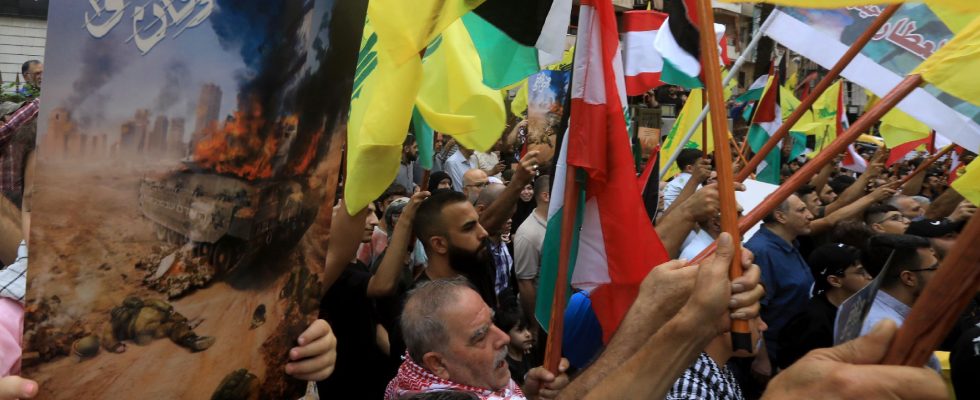Five days after Hamas’ terrible attack on Israel, the risk of the opening of a second front, this time in the north, on its border with Lebanon, threatens the Jewish state. Proof of the rise in tensions, Hezbollah, the Lebanese Islamist organization supported by Iran, fired missiles at regions in the north and northeast of Israel on the evening of Wednesday, October 11.
This aggression is part of the “slow escalation” between the Shiite group and Israel since October 8, explains Didier Leroy, researcher at the Royal Military School of Belgium. The day after the Hamas killings, Hezbollah claimed responsibility for firing from Lebanon on Israeli positions. “Classic” operations of shell and mortar fire in this area called “the Chebaa farms”, on the southeastern border of Lebanon and occupied by the Israelis since 1967. “The fighting has not gone beyond these skirmishes along the border”, adds Nicholas Blandford, Middle East analyst at the Atlantic Council, and demonstrates that Hassan Nasrallah, leader of Hezbollah, is still in the phase of reflection and observation.
For the moment, the Lebanese organization, financed by Iran and part of the anti-Israeli “axis of resistance”, has not crossed the red line. “Hezbollah wants to continue to put pressure on the Israelis by organizing attacks claimed or not, such as land infiltration attempts”, continues Nicholas Blandford, for whom “all options are still on the table”. A massive attack would have a major impact on the conflict, as on Lebanon.
Total war in the region
The first consequence would be a general conflagration, a total war in the region. Hezbollah is in fact much more powerful than Hamas, whose weapons are limited due to its landlocked position in Gaza and the Israeli-Egyptian blockade for fifteen years. The “Party of God” has a significantly superior arsenal, at least 100,000 more projectiles (rockets and missiles) than Hamas, and an army of several tens of thousands of soldiers.
Such an offensive by Iran’s armed wing would require the approval of Tehran. “A large-scale war with Israel would cause considerable damage to Hezbollah, points out Nicolas Blandford. While the Lebanese organization constitutes Iran’s greatest external asset, it is unlikely that the Iranians will take the risk of weaken,” he insists. And this, even if the anti-Israeli alliance is set to intensify.
Risk of an Israeli response on Lebanon
In the event of an attack by Hezbollah, the latter would be exposed to a terrible Israeli response. “The IDF has said, on several occasions, that it is ready to massively bomb Lebanon if Hezbollah engages in a campaign of heavy fire on Israel,” recalls Didier Leroy. “It would be even worse than what happened in 2006!”, when 1,200 Lebanese died under Israeli bombs and the majority of infrastructure was destroyed. Among the more than 300,000 Israeli reservists mobilized, tens of thousands of units have already been sent to the border with Lebanon.
Such a catastrophe would risk turning against Hezbollah, while Lebanon’s economic situation, disastrous since 2019, has only recently shown the first encouraging signs. with the arrival of Saudi investments, while the first exploitations of offshore gas fields raise hopes.
Hezbollah is, for the moment, “very attentive to what is happening in the West Bank and in the mixed cities of Israel”, analyzes Didier Leroy, and is waiting to judge whether the time for a third Intifada has come . According to the expert, “if there is no contagion, and the conflict is confined to the Gazan front, Hezbollah will remain on its current line. But if rebellions take shape in the days or weeks to come, Hassan Nasrallah could seriously get involved in the conflict by taking advantage of Israel’s internal weakening.
